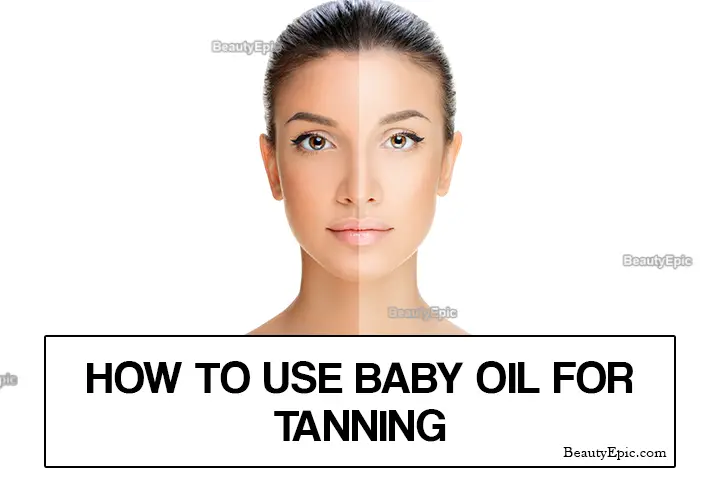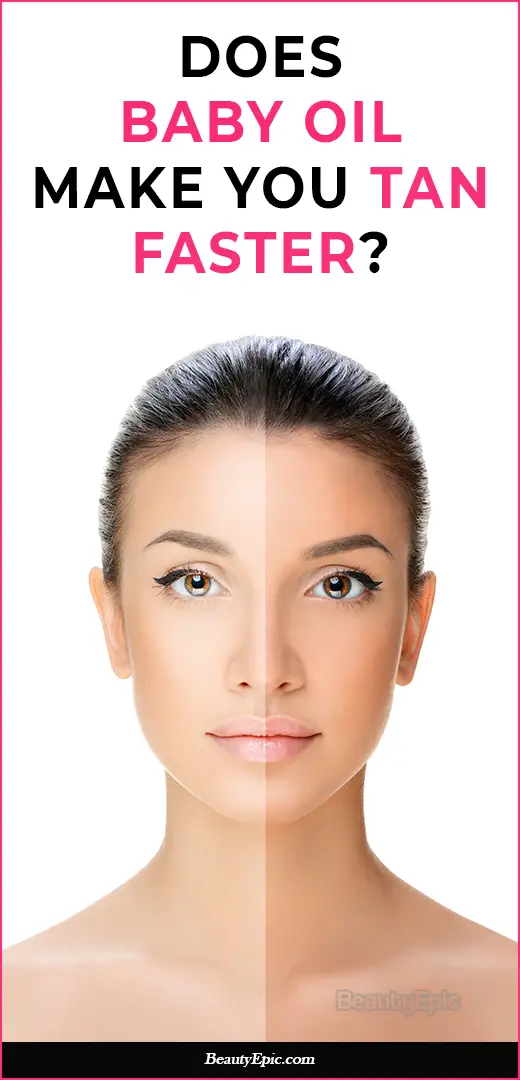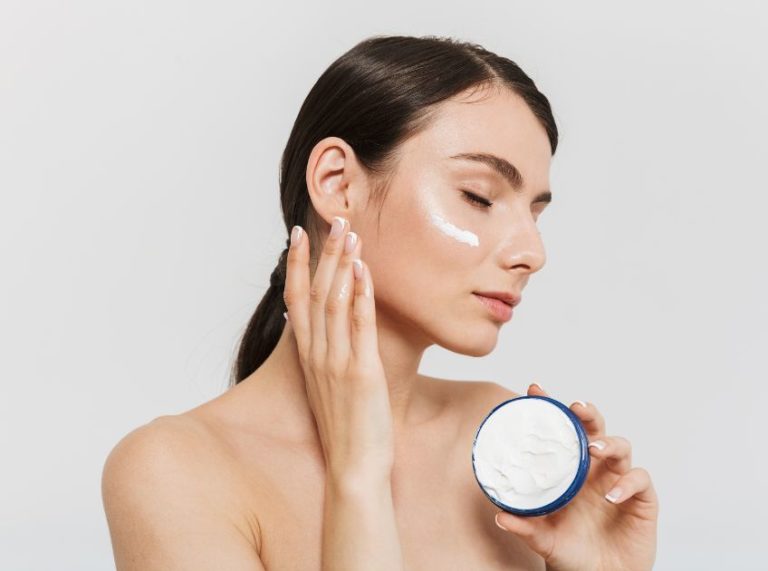
Important: This article is for informational purposes only. Please read our full disclaimer for more details.
Baby oil has been used for a long time to bronze the skin. Even though it is made for the juvenile skin of babies and to enrich their skin with minerals, it lacks SPF.
It clearly means baby oil is not good to wear when stepping outside. But exactly how bad is it, and does baby oil help you tan? If you are also baffled about the use of baby oil for tanning, continue reading and let all your queries answered.
What Is Baby Oil?
Women, whether they have babies at home or not, have a bottle of baby oil in their beauty cabinet for all the good reasons. Since baby oils are gentle on the skin, they are a good alternative to chemical-based skincare products for keeping the skin hydrated and moisturized.
Baby oils are made primarily of an odorless product called mineral oil. It consists of very little distinctive or no fragrance. When applied, it usually doesn’t penetrate but sits on the skin, keeping it soft, supple, and moisturized.
[ Read: How To Use Self-Tanner And Moisturizer ]
Why Is Baby Oil Used For Tanning?
People often apply lots of baby oil on the skin before basking under the skin to get tan. It actually helps skin tan more quickly, but this faster tanning comes with a drawback.
Since baby oil lacks sun protection and has no SPF, the skin becomes prone to damage. Sitting under the sun for long hours without wearing a high SPF sunscreen could cause severe problems like skin cancer.
So, if you prefer keeping your skin safe while getting a suntan, it is better to wear some sunscreen lotion rather than baby oil.
[ Read: How Often Should You Spray Tan? ]
How Does Baby Oil Help In Faster Tanning?
Baby oil can hasten the tanning process as it absorbs the sun better. However, it is not worth taking the risk of damaging the skin.
Sun exposure is cumulative, and chronic overexposure to the sun can damage the integrity and health of your skin, hasten the aging process, and lead to a higher risk of skin cancers.
How Safe Is It To Use Baby Oil For Tanning?
As per dermatologists, prolonged sun exposure harms the skin, and the situation worsens when not wearing sunscreen. So, just slathering some baby oil and sitting under the sun is not something a wise person would do.
Skin tans when melanin content (a compound that gives color/pigment to the skin) comes under stress due to excessive sun exposure. Tanning darkens the skin and gives it a brown-bronze color.
If you wear sunscreen, the skin will still tan; however, it will not be harmed by the harmful UV rays. According to dermatologists, no tan is safe, and tanning is not a healthy practice. It exposes the skin to sun rays for a long duration, affecting its health. For beauty reasons, people like to tan their skin, but when it comes to health, it should be avoided.
[ Read: How to Use Coconut oil for Tanning ]
What Are The Risks Of Tanning With Baby Oil?
Even though the urge to develop a tan faster may compel you to apply baby oil and head toward the beach, is it worth it? Here are some major risks that you may encounter when using baby oil for tanning-
- Damages skin and changes pigment– Penetration of UV rays increases when you slather baby oil. It stimulates melanocytes, the pigment-producing cells that may lead to sun spots, uneven pigment development, darkening of moles, and increased issues like melasma.
- Increases risk of skin cancer– As UV rays penetrate easily, quickly, and deeply to the dermis when baby oil is slathered, the risk of skin cancer increases. Those who have applied baby oil are more prone to sunburn. According to dermatologists, with more sun ray absorption and deeper penetration of the more carcinogenic UVA rays, your risk of skin cancer may also increase.
- Promotes premature aging– When UV rays penetrate deeply, the collagen breaks down. Since collagen is the component that upkeeps skin’s elasticity, its breakdown leads to fine lines, wrinkles, sun spots, and often thinning of the skin.
- Increases the chance of sunburn– Baby oil welcomes sunburn as UV rays penetrate easily inside the dermis. Sunburn is associated with a lot of skin issues like itching, pain, and discomfort. If it goes bad, you may need to visit a dermatologist to get treatment. Besides, sunburn also leads to dehydration.
Even though you may develop tan easily and quickly by applying baby oil, its adverse effects are not worth a try.
[ Read: How To Exfoliate Before A Spray Tan? ]
How About Wearing Baby Oil Over Sunscreen?
Since dermatologists reject the idea of applying baby oil for tanning, people often think about wearing baby oil over sunscreen.
However, the experts do not agree with this idea as well. It is mainly because baby oil doesn’t have SPF, and it won’t provide any protection from harmful sun rays. In fact, it is advised not to mix any oil with sunscreen as you never know how the combination will react to your skin.
At the same time, you should always layer the skin with a broad-spectrum sunscreen that provides a high level of protection to the skin, especially against UVA and UVB rays.
[ Read: Best Tanning With SPF ]
Final Words
Baby oil doesn’t offer sun protection; hence not good or safe for tanning. In fact, there is no such thing as a safe tan, even if you wear SPF. Swapping sunscreen with baby oil can worsen things, so avoiding it is better.
[ Read: How to Use Carrot Oil for Tanning ]
How Long Does it Take to Tan with Baby oil
- Tanning using baby oil and the above ingredients takes about 45 to 60 minutes to attain a proper tan.
You Might Also Like:
- 10 Best Indoor Tanning Lotion Without Bronzer for Pale Skin
- 7 Best Indoor Tanning Lotions For Face
- 10 Best Lotion To Use After Spray Tan
- 7 Best Outdoor Tanning Lotions For Fair Skin
- 10 Best Tanning Bed Lotion for Cellulite
- 7 Best Tanning Bed Lotions For Fair Skin
- Does Coconut Oil Help You Tan
- 10 Best Tingle Tanning Lotions
- What To Wear During & After A Spray Tan
- Does Your Skin Stop Tanning At A Certain Point?
- Can You Tan After Botox
- Does Being Tan Makes You Look Skinnier?
- How to Use Olive oil for Tanning
- How To Tan Faster In A Tanning Bed
- Can You Get A Tan Through A Window?
- 3 Natural DIY Self Tanner
- Spray Tan Vs Self Tanner
- Can You Use Tanning Bed Lotion Outside?
- 7 Best Tanning Oils For Pale Skin
Image:- Shutterstock
















